Does Creatine Make Your Face Fat? Creatine and Water Retention
Author:
Unlock your full potential by engaging with our experts and community! Have questions about your fitness journey or looking for expert advice on weightlifting techniques? Don’t hesitate — leave a comment below and Camila Parente Santos will provide a personalized answer and insights to help you reach your goals.
Torokhtiy is reader-supported. Some links are affiliate links, and we may earn a commission at no extra cost to you. See our disclosure page for details.
If you’re considering taking creatine, you may be wondering, “Does creatine make your face fat?”
Note that creatine will not lead to any fat gain, so the answer is no. However, it does cause a bit of added water retention inside the muscles. In this article, we’ll be taking a look at the water retention caused by creatine, and why it’s usually nothing to be concerned about. Let’s get into it!
Does creatine make your face fat? While creatine usually causes your body to hold a few extra pounds of water, it’s unlikely this will make your face look any different. Because water retention caused by creatine is in your muscles, it will not affect your facial appearance.
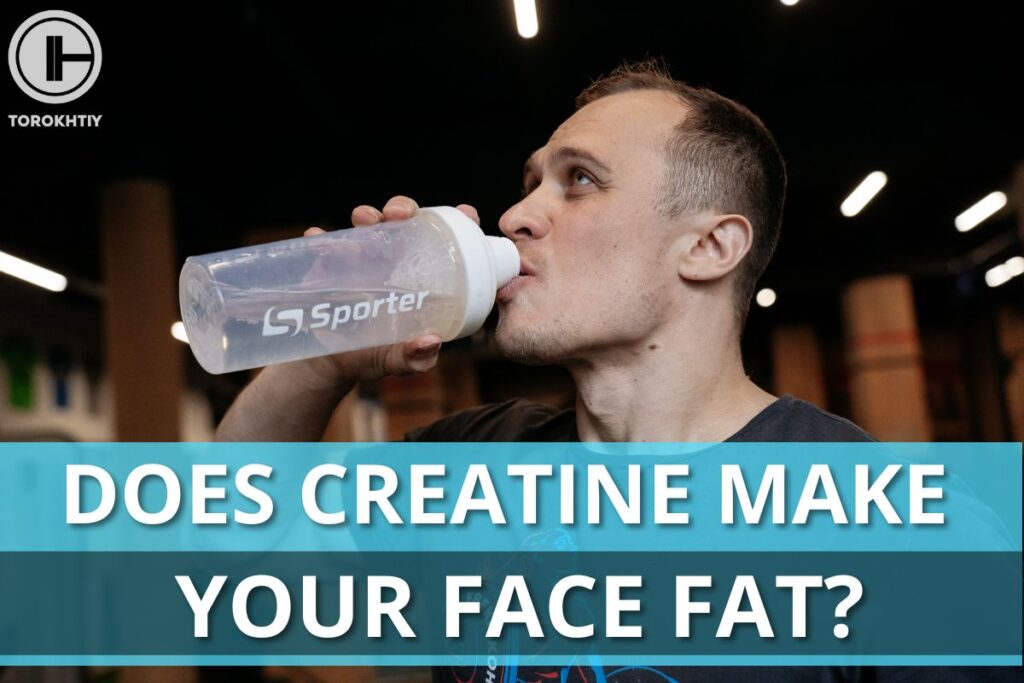
Creatine and Water Retention
One of creatine’s main effects is water retention, which is why you may be worried about creatine making your face look fat. Below we’ll be taking a closer look at water retention caused by creatine, and why it’s usually nothing to worry about.
1. Creatine Intracellular and Extracellular Water Retention
Creatine has osmotic properties, meaning it will cause increased water retention, with most people holding 0.5-1.0 extra liters of water when using creatine. This increase in total body water appears to be normally distributed between intracellular and extracellular water.
2. Creatine Supplementation Safety
The increase in water retention caused by creatine is nothing to be concerned about. Creatine is widely regarded as very safe in nearly all populations.
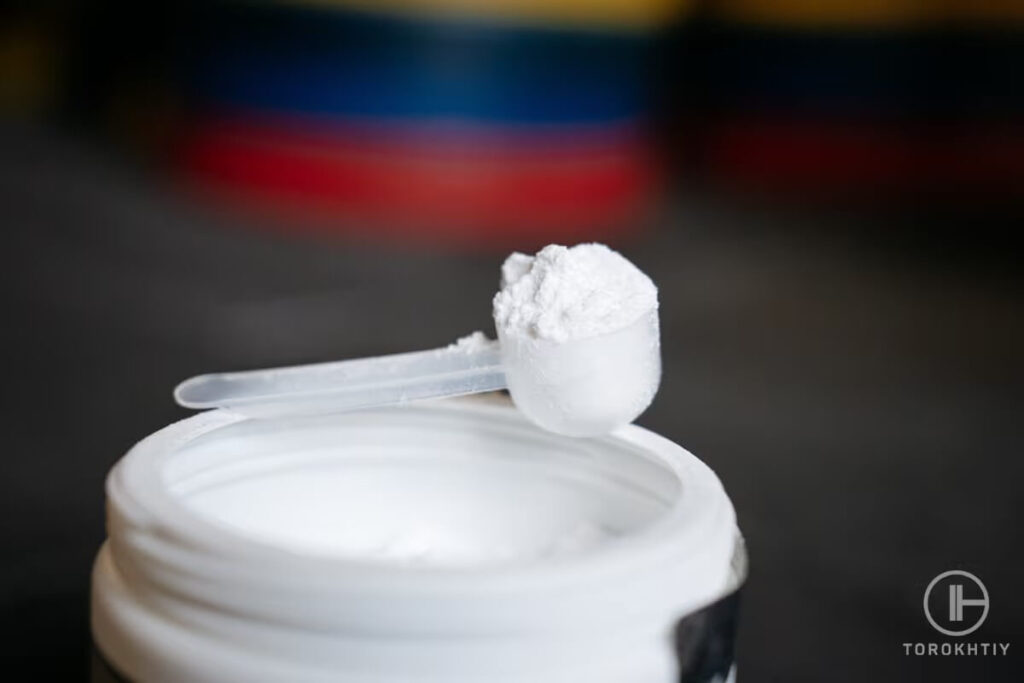
One thing worth noting is that you may want to up your water intake when using creatine to account for the extra water being held by your body. Not drinking enough water when using creatine can lead to bloating, headaches, and a dry mouth.
Does Creatine Make Your Face Fat
So, does creatine make your face puffy?
The water retention caused by creatine is unlikely to make your face appear bloated or fat. While results may vary from person to person, creatine is unlikely to make a major difference to the appearance of your face.
At worst, it may make your face appear slightly bloated at first, but this will likely subside after a few weeks, and can be helped by drinking more water.
Some Myths and Misconceptions
A common misconception with creatine is that it will cause you to gain a ton of weight overnight, making you appear bloated or significantly larger. This is not the case.
As mentioned, you can expect to gain around 0.5-1.0 liters of water weight when using creatine, which translates to about a pound or two. This is simply not enough weight to make a huge difference in your appearance. Your face before and after creatine use will likely look the same.
1. Monitor and Observe
So, can creatine bloat your face? Probably not, but If you’re concerned about how creatine will change your facial appearance, monitor your usage.
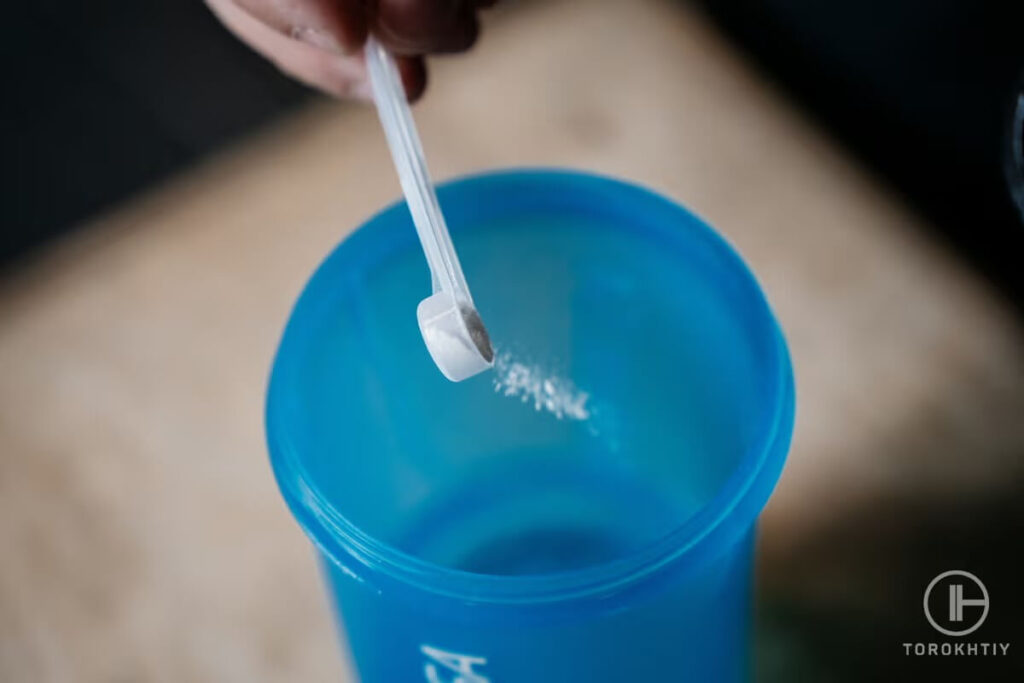
Note that bloating is a common side effect when first using creatine, especially if you’re not drinking enough water. But, be patient if your face appears puffy when first using the supplement. Your body’s creatine stores will likely be saturated within several weeks of using creatine, and initial side effects like bloating will pass. If your face still appears bloated after this period, consider stopping use if this is important to you.
2. Loading Phase
Note that if you perform a loading phase with creatine (ie. a higher daily dose to saturate your muscles quicker), you will likely gain this water weight quicker than with a standard 3-5g dose. As a result, you may notice a more immediate change in your weight. A loading phase may also cause you to appear slightly more bloated at first.
creatine dosage calculator
Loading Phase:
Maintenance Phase:
Overall, a loading phase isn’t necessary to reap all the benefits of creatine. While it does speed up the saturation process, we typically recommend sticking to a standard 3-5g/day to make your creatine last longer and to avoid any side effects like bloating.
Creatine We Recommend – Transparent Labs Creatine HMB
Transparent Labs Creatine HMB
- Item Form: Powder mix
- Best for: Power output, muscle/strength gains, recovery, nutrient absorption, contribute to bone health
- Type: Creatine monohydrate
- Suitable for Vegans: Yes
- Added Sugar: 0g
- Price per Serving (9.9g): ~$1.5
- Servings per Container: 30
- Other Ingredients: HMB, Vitamin D, Bioperine, Tartaric acid, Malic acid, Natural flavors, Stevia extract, grapefruit powder
- Recommended by Athletes: Hafthor Jullius Bjornsson, Kelsey Henson, Paul Sclar
If you’re interested in trying creatine, we recommend going for a high-quality option like Transparent Labs Creatine HMB. On top of having an effective basic 5g dose of creatine monohydrate per serving, this supplement includes HMB and Vitamin D as well.
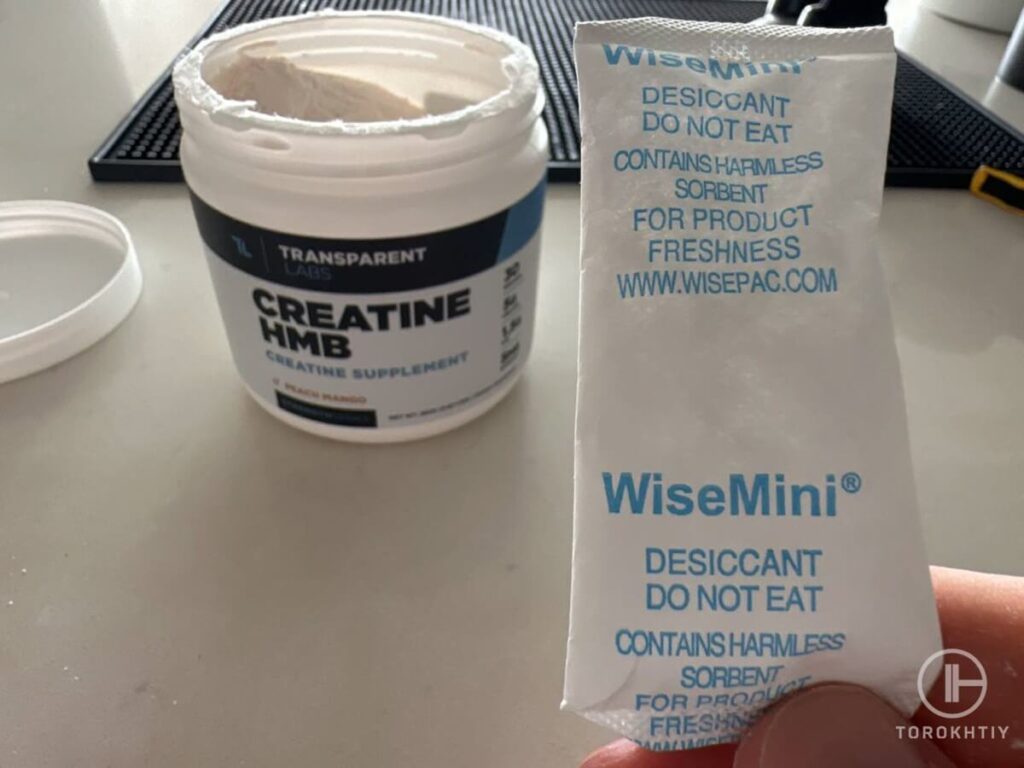
HMB has been shown to help with performance and strength, although these effects are most pronounced in beginners. Experienced athletes are unlikely to experience many benefits. Meanwhile, Vitamin D is an incredibly important nutrient for muscle and bone strength, as well as your overall health. Supplementation will be beneficial, especially if you struggle to get enough of this nutrient naturally.
This supplement comes in 14 different flavors and is made without any artificial sweeteners or flavors. Just be aware it is fairly pricey at ~$1.50 per serving.
FAQ
Is Creatine Bad for Your Face?
No, while creatine will lead to some added water retention, it’s unlikely to make a major difference in your facial appearance. While you may experience some bloating at first, this is likely to go away with consistent use.
Does Creatine Puffiness Go Away?
While creatine will cause you to retain slightly more water than usual, this is unlikely to change your appearance too much. With that being said, bloating is a common side effect that may lead to some puffiness. However, this usually goes away after a few weeks of consistent use.
Conclusion
Overall, if you’re concerned about creatine making your face fat, you have nothing to worry about. The water retention caused by creatine is unlikely to make a major difference to your face shape. While it may initially cause some bloating leading to a puffier face, this will likely subside with consistent use.
If you’re interested in rying creatine for yourself, we recommend checking out Transparent Labs Creatine HMB.
Have you ever tried creatine before? Were you aware that creatine leads to some water retention? Let us know your thoughts in the comments below!
Also read:
- Can You Take Creatine Before Bed
- Does Creatine Make You Constipated
- Does Creatine Make You Thirsty
- Does Creatine Increase Libido
- Why Does Creatine Make You Pee a Lot
- Does Creatine Break a Fast
References:
- Richard B Kreider, et. al, “ International Society of Sports Nutrition position stand: safety and efficacy of creatine supplementation in exercise, sport, and medicine” Journal of the International Society of Sports Nutrition volume 14, Article number: 18 (2017).
- Michael E. Powers, “Creatine Supplementation Increases Total Body Water Without Altering Fluid Distribution” J Athl Train. Jan-Mar; 38(1): 44–50. (2003).
- Penny, “The Pros and Cons of Creatine Monohydrate,” blogs.cuit.columbia.edu, https://blogs.cuit.columbia.edu/pa2117/2021/06/17/the-pros-and-cons-of-creatine-monohydrate/ (Accessed March 5, 2024).
- Chad M. Kerksick, et. al, “ISSN exercise & sports nutrition review update: research & recommendations” Journal of the International Society of Sports Nutrition Volume 15, – Issue 1 Article 38 (2018).
- The Nutrition Source, “Vitamin D”, Harvard T.H. Chan School of Public Health, https://www.hsph.harvard.edu/nutritionsource/vitamin-d/ (Accessed Mar. 4, 2024)
- Photos made by Torokhtiy Media Team.
Why Trust Us?
With over 20 years in Olympic weightlifting, strength training, nutrition coaching, and general fitness our team does its best to provide the audience with ultimate support and meet the needs and requirements of advanced athletes and professional lifters, as well as people who strive to open new opportunities and develop their physical capabilities with us.
By trusting the recommendations of our certified experts in coaching, nutrition, and sports training programming, as well as scientific consultants, and physiotherapists, we provide you with thorough, well-considered, and scientifically proven content. All the information given in the articles concerning workout programming, separate exercises, and athletic performance, in general, is based on verified data.
The product testing process is described in more detail here.
Camila has worked as a Nutritionist for 7 years. In addition to being a nutritionist, she is an amateur weightlifting athlete for 2 years. Camila has experience at Flamengo’s football base and in a food supplement company and currently provides services at a clinic. At the moment she is coursing a postgraduate study in Sports Nutrition.



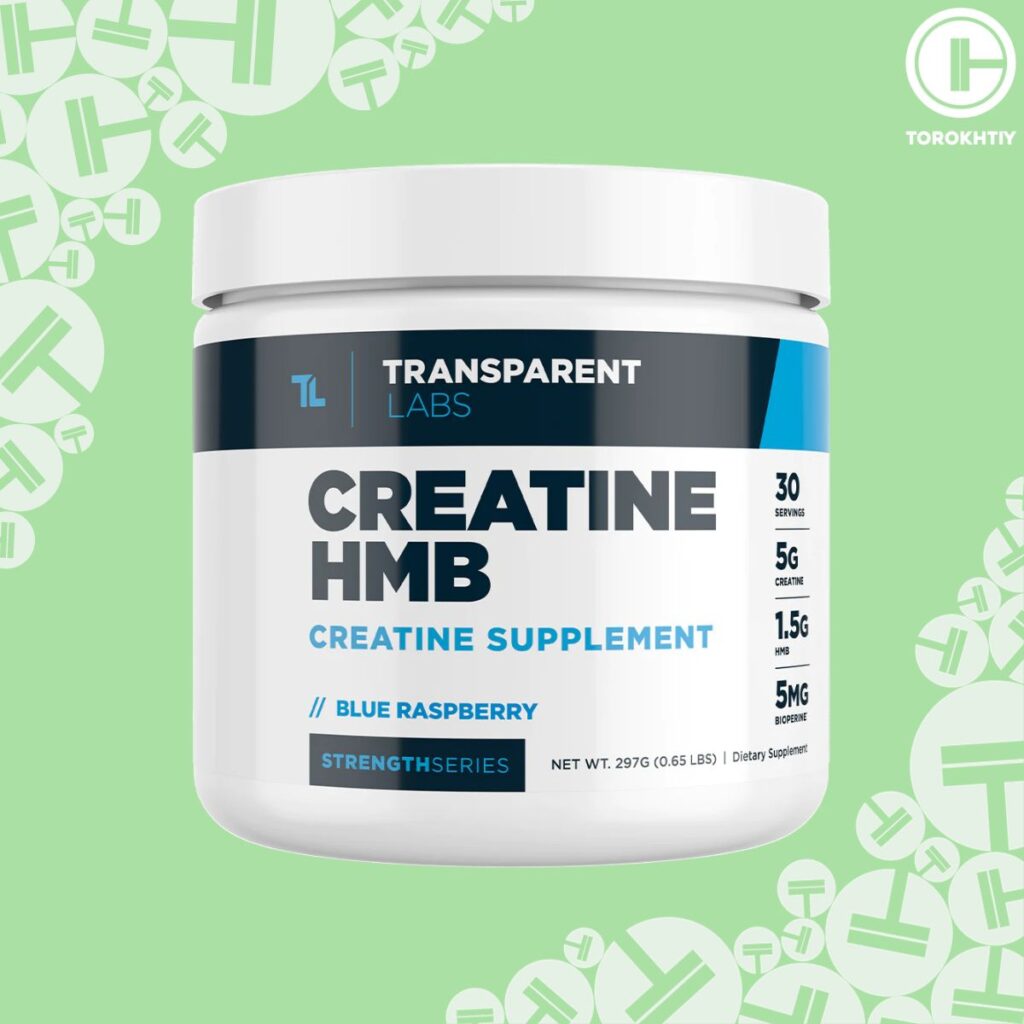
Still have questions after reading our article? Unlock your full potential by engaging with our experts and community! Don’t hesitate — leave a comment below and Camila Parente Santos will provide a personalized answer and insights to help you reach your goals.